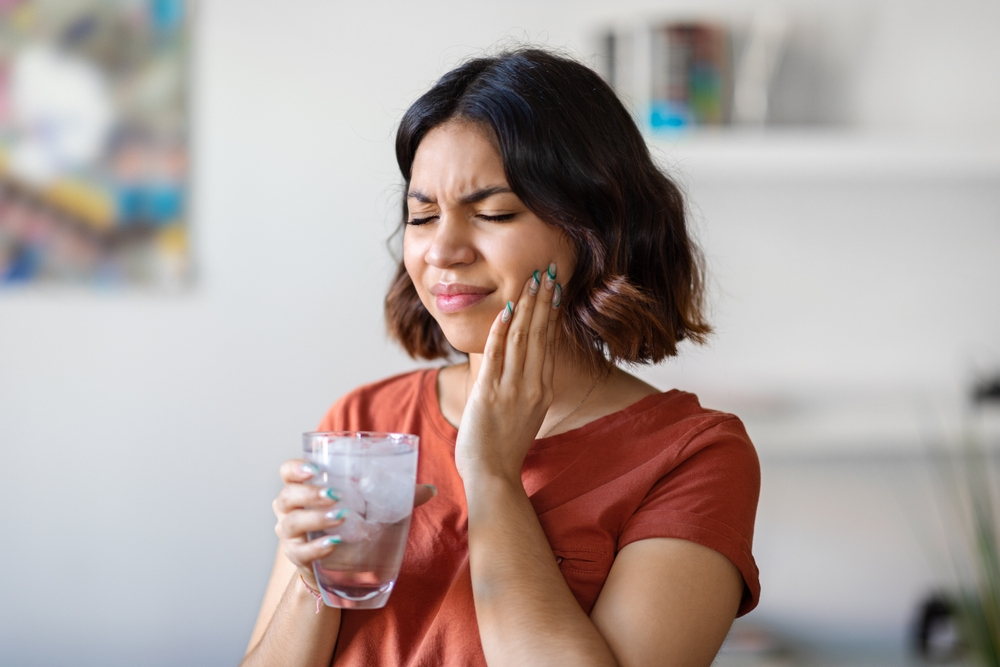Investigating the Reasons Behind Your Sensitive Teeth

What Can You Do About Sensitive Teeth?
Sensitive teeth can be a frustrating and uncomfortable experience, affecting millions of people worldwide. Whether it’s a sharp pain while enjoying an ice cream or a twinge when sipping hot coffee, tooth sensitivity can significantly impact your quality of life. In this comprehensive guide, we’ll delve into the various reasons behind sensitive teeth, explore common triggers, and discuss effective strategies for managing and preventing sensitivity.
Understanding Tooth Sensitivity:
Tooth sensitivity, also known as dentin hypersensitivity, occurs when the underlying layer of your teeth, called dentin, becomes exposed. Dentin contains tiny tubules that lead to the nerve endings in the pulp of your tooth. When dentin is exposed, external stimuli such as hot, cold, sweet, or acidic foods and beverages can stimulate the nerves, leading to pain or discomfort.
Common Causes of Tooth Sensitivity:
- Enamel Erosion:Enamel is the hard outer layer of your teeth that protects the underlying dentin. When enamel wears away due to factors like acidic foods and beverages, aggressive brushing, or tooth grinding, it can expose the sensitive dentin underneath.
- Gum Recession:Receding gums, often caused by gum disease or aggressive brushing, can expose the roots of your teeth, which are not covered by enamel and are more susceptible to sensitivity.
- Tooth Decay:Cavities or dental caries can lead to sensitivity, especially if they progress to involve the dentin or pulp of the tooth.
- Dental Procedures:Certain dental treatments such as teeth whitening, fillings, or crowns may cause temporary sensitivity, which usually resolves on its own over time.
- Cracked or Fractured Teeth:Cracks or fractures in the teeth can expose the dentin and lead to sensitivity, particularly when chewing or biting.
- Bruxism:Teeth grinding or clenching, often during sleep, can wear down enamel and lead to sensitivity over time.
- Dental Trauma:Trauma to the teeth, such as a sports injury or accident, can damage the enamel or expose the dentin, resulting in sensitivity.
Managing and Preventing Tooth Sensitivity:
- Use a Desensitizing Toothpaste:Specialized desensitizing toothpaste containing ingredients like potassium nitrate or fluoride can help block the nerve pathways and reduce sensitivity over time.
- Practice Proper Oral Hygiene:Brush your teeth gently using a soft-bristled toothbrush and fluoride toothpaste. Avoid aggressive brushing or using a hard-bristled brush, as it can contribute to enamel erosion and gum recession.
- Limit Acidic Foods and Beverages:Minimize consumption of acidic foods and drinks such as citrus fruits, sodas, and wine, as they can erode enamel and exacerbate sensitivity.
- Wear a Night Guard:If you grind or clench your teeth, wearing a custom-fitted night guard can protect your teeth from further enamel wear and reduce sensitivity.
- Visit Your Dentist Regularly:Regular dental check-ups are essential for identifying and addressing any underlying dental issues that may be contributing to sensitivity. Your dentist can recommend appropriate treatments such as fluoride varnishes, dental sealants, or dental bonding to help alleviate sensitivity.
Conclusion:
Sensitive teeth can be a common but distressing problem, impacting your ability to enjoy everyday activities and foods. By understanding the various causes of tooth sensitivity and implementing effective management and prevention strategies, you can take control of your oral health and minimize discomfort. Remember to prioritize gentle oral hygiene practices, avoid acidic foods, wear a night guard if necessary, and schedule regular dental visits to address any underlying issues promptly. With the right approach, you can alleviate sensitivity and enjoy a healthy, pain-free smile for years to come.
